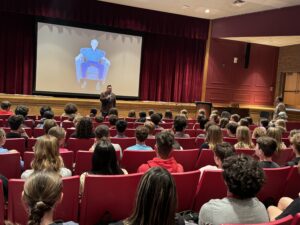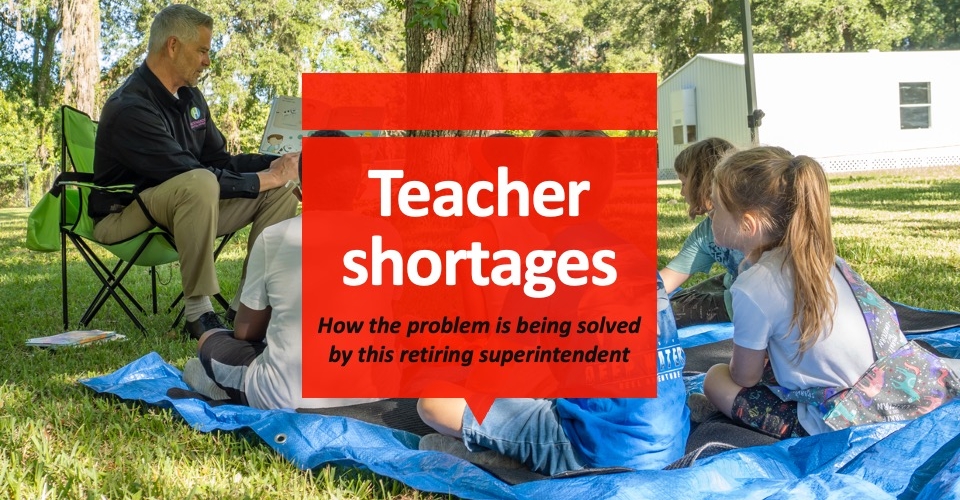Speaking one-on-one with a Holocaust survivor is a pretty extraordinary learning experience. It’s even more amazing—and seemingly impossible—for a student to interview a survivor who has come and gone, but had their story preserved. Thanks to artificial intelligence, the latter scenario is more realistic than you might think.
Last month, middle school students from the Brigantine Public School District in New Jersey were given the learning experience of a lifetime. Students saw what looked like an older gentleman on a projector screen interacting with them on a Zoom call. They didn’t know that the man they were speaking with, Edward Mosberg, died in September 2022.
Thankfully, Mosberg’s ability to tell his story lives on. He is one of several Holocaust survivors whose stories have been captured through interviews and documentation and transformed into “interactive biographies” by the USC Shoah Foundation. Below you’ll find a “60 Minutes” report detailing the process behind creating the technology:
Bringing history to life
Stockton University’s Sara and Sam Schoffer Holocaust Resource Center became one of the first organizations in the world to host the first generation of interactive Holocaust testimonies. This allowed Brigantine Public Schools students to learn about the Holocaust like no other children had before.
Irvin Moreno-Rodriguez, director of the Sara and Sam Schoffer Holocaust Resource Center at Stockton University, says the relationship between humans and technology is becoming more intimate at a time when there is a decreasing number of Holocaust survivors left to tell their story—in person.
“When we look to the future with technologies like the interactive biography of a Holocaust survivor, students will be more engaged because they have the ability to ask questions and in real time receive an answer,” he says.
More from DA: Teaching apprenticeships: Here are 3 models that work
Such innovation is key to creating that spark and curiosity for learning, he adds. There’s no such thing as a dumb question when interacting with AI because a genuine response is guaranteed. When the students finally learned that the man they were speaking to was no longer alive, they began to think more critically about their questions.
“In the last question, a student asked, ‘Why did you record your testimony?'” says Moreno-Rodriguez. “No one’s ever asked that question before.”

‘I thought he was actually there’
Brigantine’s middle school students were particularly interested in Mosberg’s experiences and his family. “Most of his responses were emotional,” says 8th-grader Addison Goodman. “It was hard to understand what he was saying sometimes. Overall, I thought it was a really cool experience.”
“Anything that was about his family, he seemed pretty traumatized,” added 7th-grader Sierra Fische. And 8th-grader Annabella Casamento contended they weren’t simply talking to a hologram. “You could see his emotions,” she noted.
Superintendent Glenn Robbins says he was just as surprised. When the head representative of the Temple Beth Sholom reached out to him asking if they’d be interested in hosting a Holocaust assembly, he figured it’d be your typical presentation.
“We had no clue what we were in store for,” he says.
Goodman reflected that she prefers an experience like this over any history book. “I feel like I would much rather have an assembly or something like that rather than reading it in a magazine or a book,” she says. “You get to ask your own questions and find out more.”
The students agreed with Moreno-Rodriguez that their peers were much more comfortable asking questions because they were interacting with AI. “I notice when people come to assemblies, we’re more hesitant to ask,” says Goodman. “We had a little more freedom.”









